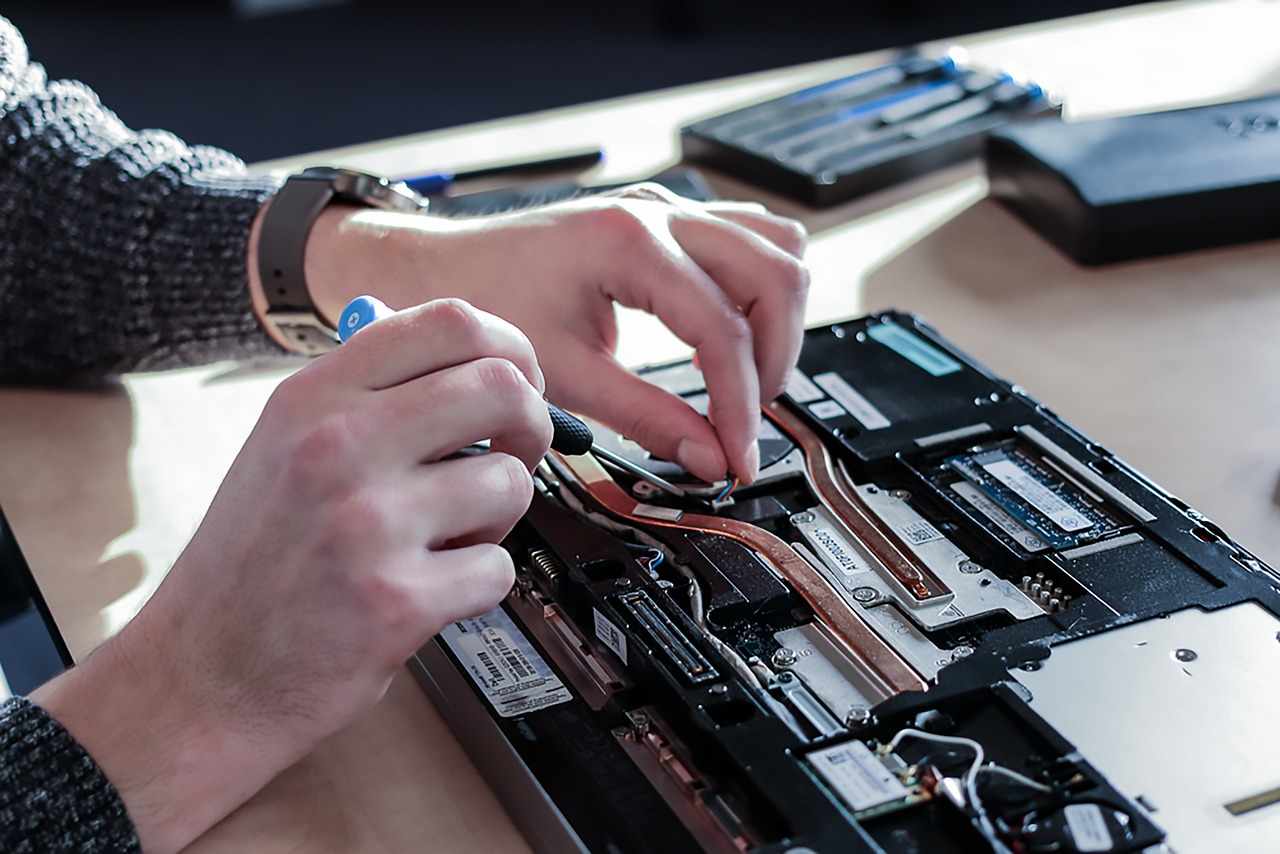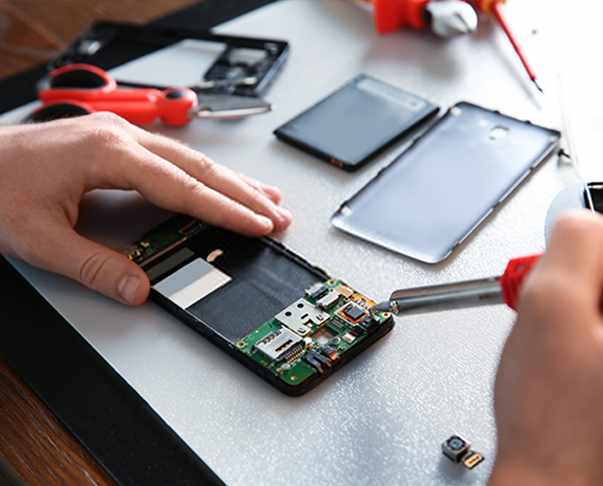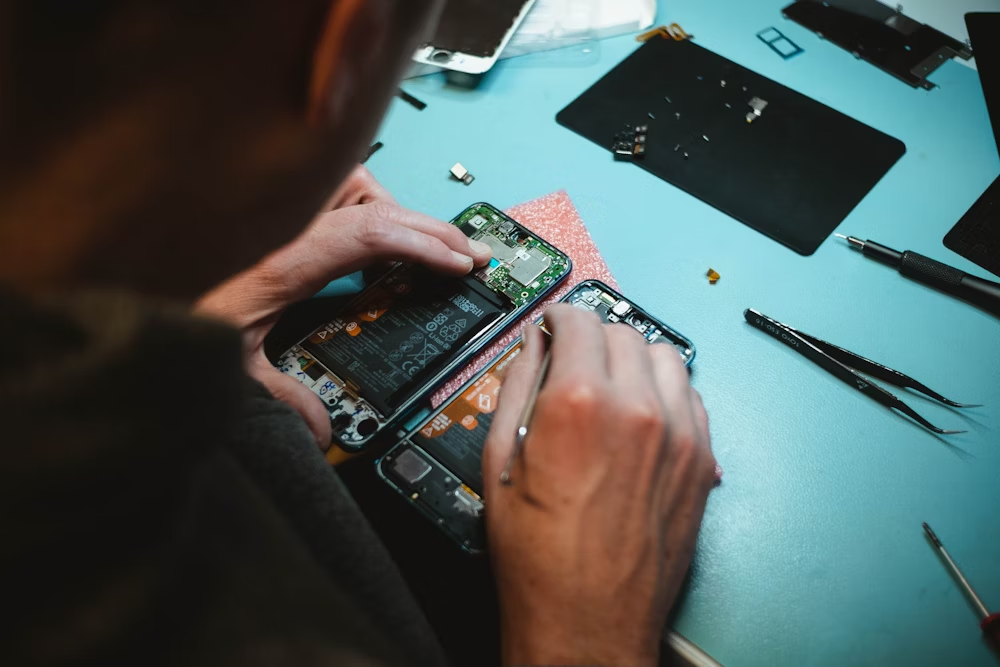
Laptops have become an integral part of our daily lives, serving as essential tools for work, entertainment, and communication. However, one common issue that plagues many laptop users is overheating. When a laptop overheats, it can lead to performance issues, hardware damage, and even system failure. Understanding the causes of laptop overheating and learning how to fix them is crucial for maintaining the health and longevity of your device. For those seeking to acquire the necessary skills to address such issues, finding a reputable laptop repairing institute in Delhi is essential. Hi-Tech Institute, a prominent name in the field of laptop and mobile repairing, has been in operation for 20 years since January 1, 2004. With a track record of training over 3 lakh students, Hi-Tech Institute equips individuals with the knowledge and expertise to earn 40 to 50k monthly after completing their laptop repairing course. In this comprehensive guide, we will explore the causes of laptop overheating and provide effective solutions to address this common problem.
1. Dust and Dirt Build-Up
Cause: Over time, dust and dirt can accumulate inside the laptop, clogging the air vents and obstructing airflow.
Solution: Regularly clean the laptop's vents and internal components using compressed air to remove dust and debris. This will improve airflow and prevent overheating.
2. Inadequate Ventilation
Cause: Placing the laptop on soft surfaces like beds or couches can block the air vents, hindering proper ventilation.
Solution: Use a laptop cooling pad or elevate the laptop on a hard, flat surface to allow for better airflow and cooling.
3. Heavy Workload
Cause: Running multiple demanding applications or tasks simultaneously can put a strain on the laptop's hardware, leading to overheating.
Solution: Close unnecessary programs and applications to reduce the workload on the laptop's CPU and GPU, thereby lowering the risk of overheating.
4. Faulty Cooling System
Cause: Malfunctioning cooling fans or heat sinks can impede the laptop's ability to dissipate heat effectively, resulting in overheating.
Solution: Inspect the cooling system for any signs of damage or malfunction and replace faulty components as needed to restore proper cooling functionality.
5. Old or Deteriorating Thermal Paste
Cause: Over time, the thermal paste that helps transfer heat from the CPU and GPU to the heat sink can degrade, reducing its effectiveness.
Solution: Remove the old thermal paste and apply a fresh layer to ensure optimal heat transfer and prevent overheating.
6. High Ambient Temperatures
Cause: Operating the laptop in environments with high ambient temperatures can exacerbate overheating issues.
Solution: Avoid using the laptop in direct sunlight or hot environments, and ensure proper ventilation to help dissipate heat effectively.
7. Hardware Malfunctions
Cause: Hardware components such as the CPU or GPU may malfunction or become damaged, leading to overheating.
Solution: Perform diagnostic tests to identify any faulty hardware components and replace them as necessary to resolve the overheating issue.
8. Outdated or Incompatible Drivers
Cause: Using outdated or incompatible device drivers can cause the laptop's hardware to work inefficiently, resulting in overheating.
Solution: Regularly update device drivers to ensure compatibility and optimize performance, thereby reducing the risk of overheating.
9. Overclocking
Cause: Overclocking the CPU or GPU to achieve higher performance can increase heat generation beyond the laptop's cooling capabilities, leading to overheating.
Solution: Avoid overclocking the laptop's hardware or revert to factory default settings to maintain stable temperatures.
10. Battery Issues
Cause: A faulty or damaged battery can generate excess heat, contributing to laptop overheating.
Solution: Replace the battery with a genuine, compatible replacement to resolve battery-related overheating issues.
11. Software Issues
Cause: Background processes or software bugs can cause the CPU to work harder than necessary, leading to increased heat generation.
Solution: Close unnecessary background processes and perform regular software updates to minimize the risk of software-related overheating.
12. Improper Laptop Usage
Cause: Using the laptop on soft surfaces or blocking the air vents with hands or objects can restrict airflow and contribute to overheating.
Solution: Use the laptop on a hard, flat surface and ensure that the air vents are unobstructed to promote proper ventilation and cooling.
13. Lack of Maintenance
Cause: Neglecting routine maintenance tasks such as cleaning the laptop's internal components can lead to dust accumulation and reduced cooling efficiency.
Solution: Establish a regular maintenance schedule to clean the laptop's vents, fans, and internal components to prevent overheating.
14. System Overload
Cause: Running resource-intensive applications or tasks beyond the laptop's capabilities can overload the system and cause overheating.
Solution: Prioritize tasks and avoid running excessive applications simultaneously to prevent system overload and overheating.
15. Environmental Factors
Cause: Operating the laptop in extreme environmental conditions such as high humidity or dust-laden environments can exacerbate overheating issues.
Solution: Maintain a clean and controlled environment for laptop usage, and use protective covers or cases to shield the laptop from environmental hazards.
Laptop overheating can be a significant nuisance, but with the right knowledge and proactive measures, it can be effectively managed and mitigated. By understanding the causes of laptop overheating and implementing the appropriate solutions outlined in this guide, users can ensure optimal performance and longevity of their devices. For those interested in mastering the skills needed to address laptop hardware issues, enrolling in a reputable laptop repairing course in Delhi, can provide the necessary training and support. With Hi-Tech Institute's 20 years of experience and track record of training over 3 lakh students, individuals can acquire the expertise needed to earn 40 to 50k monthly after completing their laptop repairing course.




Write a comment ...